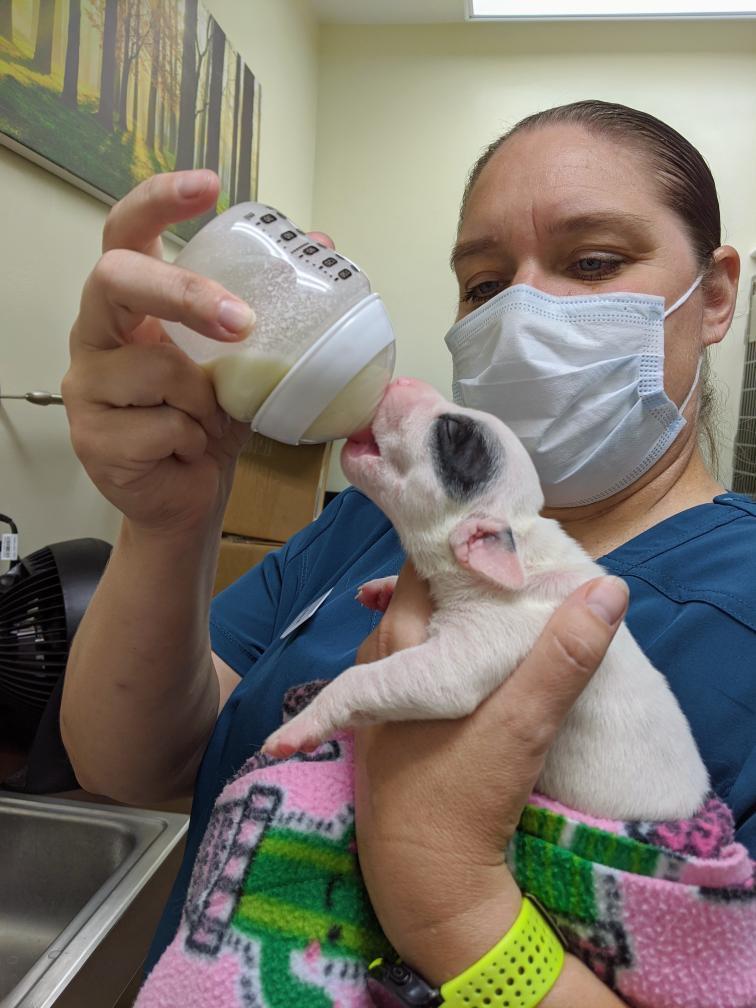For Puppy Health Questions Regarding Socialization, Parasite Control, Deworming, Vaccines, Spay, Neutering, Diet or Dental, Contact Piedmont Small Animal
Curious to learn more about your puppy’s health care?
We are here to help! Here are some common discussion points. Please feel free to engage our doctors and staff if you have any questions.
- Socialization – use a socialization checklist and prioritize this very important topic.
- Internal parasite control – Most puppies have GI parasites and should receive a minimum of two doses of deworming medication.
- Fecal Testing -A fecal test looks for microscopic evidence of parasitic infection. Why are we doing it? To help make sure your puppy is free from parasites and so not able to infect other pets or people, or to contaminate the environment. We May discover organisms not typically treated by the common puppy worming medication. We also want to recheck a fecal to make sure a worming medication has successfully cleared a previous parasitic infection.
- Vaccines – Puppies receive vaccinations every 2-4 weeks from 8 weeks until at least 16 weeks of age. Your puppy will receive vaccines based on lifestyle and risk factors. (put up in socialization section?) Do not wait until your puppy is fully vaccinated to start your socialization program. Check out the AVSAB Position Statement on Puppy Socialization
- Microchip – Less than 20% of lost dogs are reunited with their owners. Increase these odds with a microchip that provides a secure, reliable, and permanent ID. If your puppy already has a microchip, make sure you are registered to it and your information is updated if you change addresses or phone numbers.
- Timing of spay/neuter – 8 to 10 months, OR after the first heat cycle, OR after one year of age. Breed, size, and family preferences are all factors to consider to determine the best timing for your puppy.
- Parasite prevention – Heartworm preventative monthly. Oral flea and tick prevention monthly or the Seresto Collar. Provide both all year round.
- Diet – Feed “puppy”, “growth”, or “safe for all life stages” diets to puppies. Visit the American College of Veterinary Nutrition, (acvn.org) for commonly asked questions about pet nutrition.
- Grooming/handling- Practice brushing and nail trimming with short sessions daily and with lots of praise and treats. Gently handle all body parts, especially the ears, mouth, feet, and tail.
- Dental care – Start early with Veterinary Oral Health Council approved products, (vohc.org). Start by gently rubbing the teeth and gums, then move up to dental wipes.
- Crate training- Check out fearfreehappyhomes.com under training; “Teach your dog that crates are great!”
- House training – again, look at fearfreehappyhomes.com under training; “How to housebreak your puppy the fear-free way.
- Obedience training- Puppy Classes with positive training methods are preferred. We recommend “Puppy Start Right” by Kenneth and Debbie Martin for at-home training. Always leash train your puppy!
- Pet Health Insurance – As more people consider pets part of their family, the quality and options in veterinary care improve. However, as a result, the cost of veterinary health care is increasing. Consider a pet health insurance to protect your pet and your finances in case of unforeseen accidents or illnesses. Do you need pet insurance?
- Avoid dangerous rodent bait and use this instead Rodent Trap from Home Very Often
Call Piedmont Small Animal today at (540) 364-4954 to schedule an appointment, or complete our Contact form.


